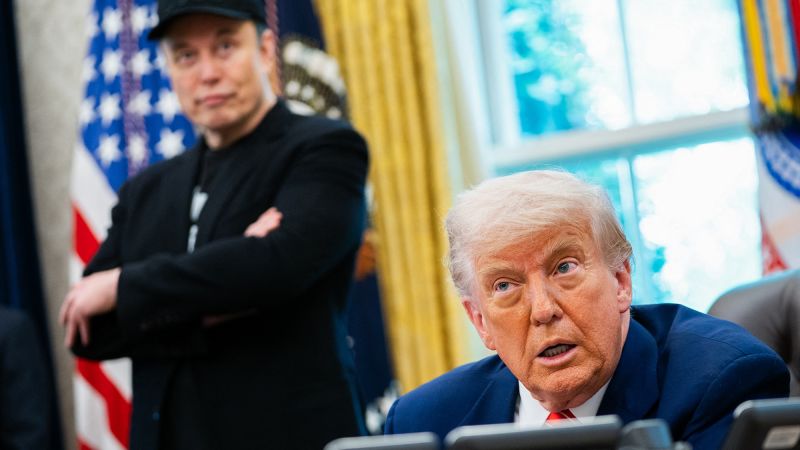Elon Musk’s brief but pointed commentary on social media has become a focal point for criticism of President Donald Trump’s legislative agenda, particularly concerning a significant domestic policy bill. Musk’s cutting remark arrived amidst a White House press briefing, capturing the attention of both politicians and the public alike. His words conveyed an escalating frustration regarding the bill’s exorbitant expenses, labeling it as “this massive, outrageous, pork-filled Congressional spending bill” and a “disgusting abomination.” This outburst not only highlighted Musk’s growing influence on political discussions but also underscored the increasing skepticism surrounding the White House’s financial claims.
The timing of Musk’s criticism couldn’t have been more relevant; Senate Republicans were preparing to navigate the challenges of passing this crucial piece of legislation, designed to fund a myriad of initiatives outlined in Trump’s administration. Nevertheless, a consensus among economists and analysts raised alarms about the potential trillions added to the national debt, contrary to the assertions made by Trump and his economic advisors. They consistently reiterated that the bill would not contribute to the debt over the coming decade, a claim that stood in stark contrast to various budget analyses and economic forecasts.
In contrast to the prevailing skepticism, White House officials defended their optimistic projections, arguing that the bill would catalyze a surge in economic activity, which would, in turn, buoy tax revenues. This would ostensibly counteract the projected loss of $3.7 trillion over ten years. The administration anticipated that a combination of enhanced federal tax receipts and the effects of newly imposed tariffs would generate substantial revenue, even as they braced for intense spending negotiations ahead.
At the heart of this debate are fundamental disagreements between economic philosophies. White House officials maintain that the predicted growth, spurred by their vast tax cuts and various deregulatory measures, would negate any adverse effects on the deficit. However, this projection is underpinned by a series of assumptions, including potential revenue from tariffs and sustained business investment growth, which are not universally accepted.
As the Senate’s deliberations progressed, concerns voiced by Republican Senators such as Rand Paul emerged, further complicating the administration’s efforts. Paul emphasized the balancing act required between supporting tax cuts while also addressing the newly projected $5 trillion in debt that would accompany this legislative package. Underlying this contention was an acknowledgment among legislators that the realities of a divided Congress and the increasing worries of bond investors necessitated a more responsible fiscal approach.
Many bond investors have expressed their trepidations regarding the U.S. debt level, leading to concerns over potential downgrades in credit ratings. Notable figures such as JPMorgan CEO Jamie Dimon pointed out that without significant policy shifts, a fiscal crisis loomed on the horizon. While Trump’s administration appeared dismissive of these warnings, keeping faith in their transformative agenda, the concerns of the investment community could not be ignored. Treasury Secretary Scott Bessent’s comments showcased an internal belief that warned forecasts from influential figures would ultimately not come to pass, reflecting a disconnect between the administration’s confidence and the broader market sentiment.
As discussions surrounding the proposed legislation unfolded, the White House maintained a hardline stance, insisting that the bill would not contribute to the national deficit while preparing for a fundamental battle on Capitol Hill regarding discretionary spending cuts. It’s essential to highlight that this legislative struggle is about more than just numbers; it represents the core of Trump’s economic strategy, mirroring campaign promises and the foundational tenets of Republican governance.
Ultimately, within the realm of U.S. economics, the juxtaposition of traditional economic wisdom with the administration’s audacious projections poses questions about its underlying assumptions and how they align with the prevailing economic consensus. The attempts to persuade skeptics in the financial sphere will undoubtedly play a critical role in shaping the future economic landscape. Musk’s recent commentary might have further strained relations, but as officials at the White House have asserted, they remain committed to the course they have charted, undeterred by the external pressures mounting against them.



